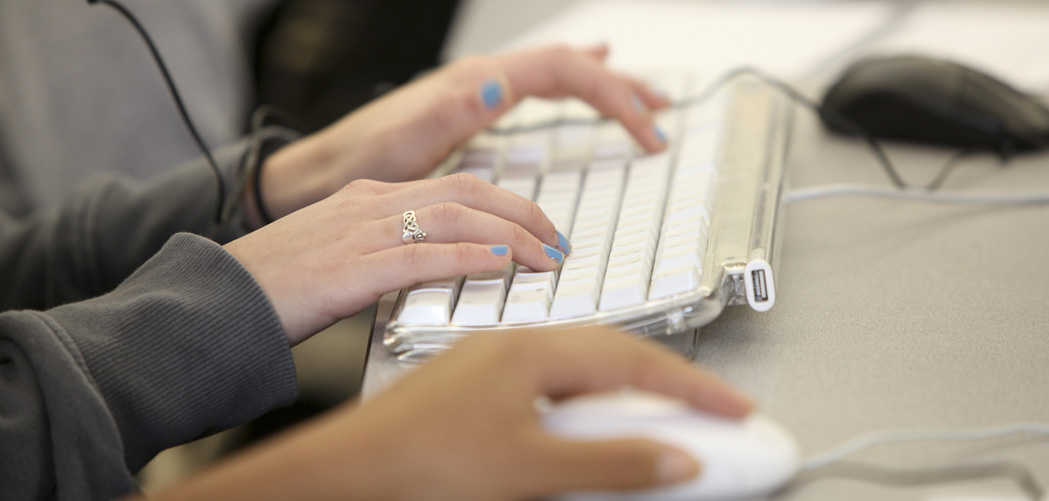USC Shoah Foundation Guest Book Receives Messages of Thanks and Inspiration From Around the World

The messages come from Canada, the Netherlands, Arkansas. Some are written by teachers or former interviewers or the children and grandchildren of survivors. Some express sadness for the lives lost in the Holocaust, while others show steely determination to never allow such horrors to happen again. And all say that watching testimony has inspired them and taught them lessons about tolerance and humanity that they will never forget.
This is USC Shoah Foundation’s guest book, launched January 1, 2014, and scheduled to remain online through the end of the year to commemorate USC Shoah Foundation’s 20th anniversary. Visitors to the USC Shoah Foundation website are asked to share their personal stories and thoughts, and explain how engaging with testimony from the Visual History Archive has affected, informed, or motivated them.
Halfway through its lifespan, the guestbook contains over 100 entries from a diverse range of visitors. They come from across the United States – California, Florida, New York, Tennessee, Colorado, Missouri, Hawaii, and Pennsylvania, to name a few – and all over the world. The guest book has been signed in Italy, Mexico, Germany, England, Romania, the Netherlands, Canada, Australia, Switzerland, Argentina and Sweden.
Many messages are from current or former staff of the USC Shoah Foundation, who talk about how meaningful it has been to be part of the Institute over the years. Barbara Linz, from Sydney, Australia, said she is grateful to have had the opportunity to work as an interviewer when the Shoah Foundation began collecting testimonies in Sydney.
“[L]ooking back on the period today, [I] feel that it was the most important learning experience I have ever had. Jewish history, Holocaust history, Human history and emotion.. brutality, hatred, fear, empathy, kindness and survival...all contextualised in those dramatic interviews,” Linz wrote.
Several teachers and professors who have used testimony to teach their students about the Holocaust and genocide spoke about the impact it has had on them as educators. Kayte Russell of Chula Vista, Calif., wrote, “As a member of the 2009 Teaching with Testimonies group, I was given a powerful tool to use with my students and families. My project was to select 4 testimonies in Spanish to be uploaded to YouTube. Not only do I have a wonderful tool to use with my students whose first language is Spanish, but I have 4 new "aunts" and "uncles" whom I feel that I know from listening to their testimonies.”
Students, too, shared what watching testimony in school has meant to them. Kim Aguilar of Bayonne, New Jersey, said, “It's really great that students, like myself are able to go on and watch all these testimonies from the survivors because that is the only thing we have to help keep their memories and stories alive so that the coming generations will never forget.”
Many visitors say that they feel deeply affected by the testimonies of the USC Shoah Foundation despite having no family connection to the Holocaust or even knowing much about genocide previously.
“I personally don't have any connection to these stories but I salute your immense effort to preserve all of these small pieces of history. It's absolutely fascinating what you have achieved,” said Raul in Brasov, Romania.
Others say they are using testimony for their own research and book projects.
Some of the most heartfelt messages come from the friends and family members of survivors whose testimonies are preserved in the Visual History Archive. Allan Skoropa from Pontiac, Mich., said knowing that the testimonies of his parents are in the Visual History Archive is “humbling,” and Erin Kaufman of Blue Bell, Penn., said she is using her grandfather’s testimony to learn about her ancestry.
One message, from Seale Bagnal Lea in Minneapolis, reveals how deeply personal watching testimony can be.
“The value of the work of the USC Shoah Foundation exceeds all measure. Through the highly informative and riveting testimony of my birth mother, a survivor of both Auschwitz and Bergen- Belsen, I have been able to "know" her in a way that would otherwise have not been possible. While she and I will not meet in person, the video has provided me with a previously unknown knowledge of my heritage. Thanks be to God and Mr. Spielberg for this miraculous and life- changing discovery,” Lea wrote.
Regardless of their background or reason for watching testimony, the most common sentiment expressed in the guest book messages is simply “Thank you” – for opening their eyes to the truth about genocide, for preserving the survivors’ stories in perpetuity, and educating the next generation.
Dayna Gershick, from Encino, Calif., says “I think this project is one of the most important things I have ever seen in my life. Thank you to all who work on this so important work.”
“Documenting and sharing the stories of Holocaust survivors is a way to show that the human spirit is more powerful than anything in the world,” wrote Ruth Morineau from Mexico City. “It is also the way to educate and work together to prevent atrocities like this from happening. Thank you very much.”
The USC Shoah Foundation invites you to sign the guest book until December 31, 2014, to share your own thoughts.
Like this article? Get our e-newsletter.
Be the first to learn about new articles and personal stories like the one you've just read.